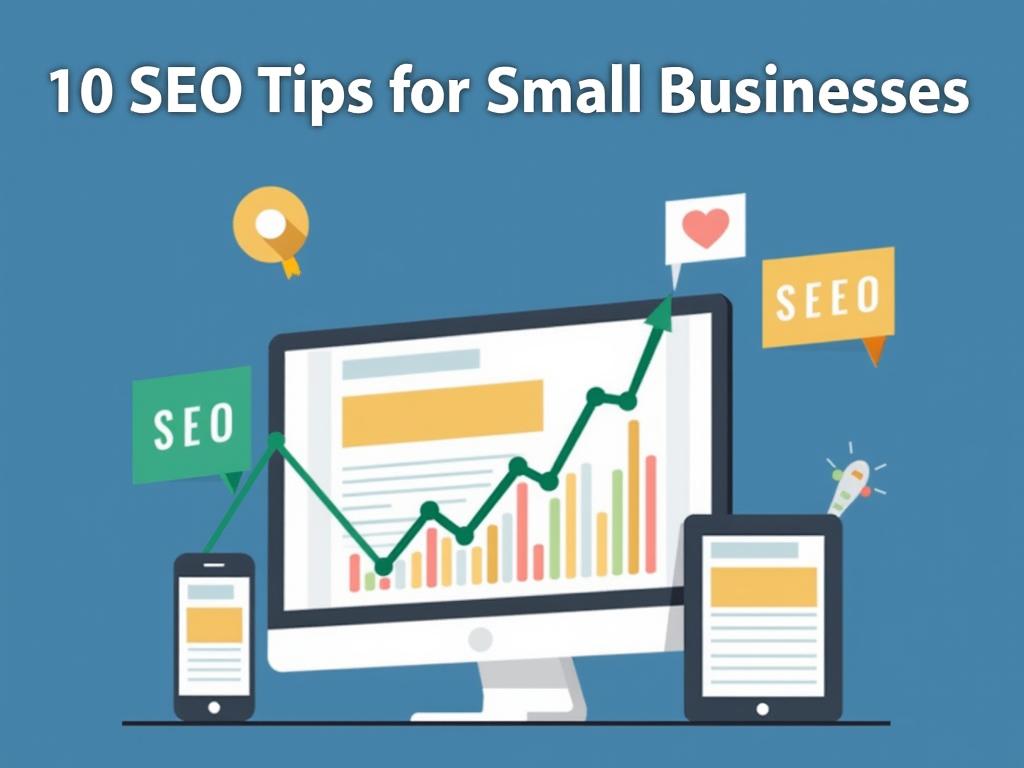
Search engine optimization (SEO) is crucial for small businesses looking to increase their online visibility and attract more customers. In this article, we share 10 effective SEO tips specifically tailored for small businesses.
1. Conduct Keyword Research
Start by identifying the keywords and phrases your potential customers are using to search for products or services similar to yours. Tools like Google Keyword Planner, Ahrefs, or SEMrush can help you find relevant keywords with good search volume and manageable competition.
2. Optimize Your Website Structure
Ensure your website has a clear, logical structure that makes it easy for search engines to crawl and index your content. Use a hierarchical organization with categories and subcategories that help users navigate your site intuitively.
3. Create Quality Content
Develop high-quality, valuable content that addresses your audience's needs and questions. Regularly publishing informative blog posts, guides, or case studies can establish your expertise and improve your search rankings.
4. Optimize On-Page Elements
Pay attention to on-page SEO elements such as title tags, meta descriptions, header tags, and image alt text. Incorporate your target keywords naturally while ensuring these elements accurately describe your content.
5. Improve Page Speed
Page speed is a crucial ranking factor. Optimize images, leverage browser caching, minimize CSS and JavaScript, and consider using a content delivery network (CDN) to improve loading times.
6. Make Your Website Mobile-Friendly
With mobile-first indexing, Google primarily uses the mobile version of your website for ranking. Ensure your website is responsive and provides an excellent user experience across all devices.
7. Build Quality Backlinks
Earn backlinks from reputable websites in your industry. Strategies include creating shareable content, guest blogging, participating in industry forums, and engaging with local business associations.
8. Optimize for Local SEO
If you serve local customers, optimize for local searches by creating and verifying your Google Business Profile, getting listed in local directories, and encouraging customer reviews.
9. Use Social Media to Amplify Your Content
Although social media signals aren't direct ranking factors, active social media profiles can increase your content's visibility and drive traffic to your website, indirectly benefiting your SEO efforts.
10. Monitor and Analyze Your Performance
Use tools like Google Analytics and Google Search Console to track your website's performance. Regularly analyze this data to identify what's working and where improvements are needed.
Conclusion
Implementing these SEO tips can help your small business improve its online visibility and attract more potential customers. Remember that SEO is a long-term strategy, and consistent effort over time will yield the best results.
Comments (3)

Sarah Williams
2 days agoI'm glad to hear that, Michael! Which strategies have been most effective for your business?
Reply
Robert Johnson
1 day agoI would add that local SEO is particularly important for brick-and-mortar businesses. Don't forget to claim your Google Business Profile and ensure your NAP (Name, Address, Phone) information is consistent across all directories.
Reply
Michael Brown
3 days agoGreat article! I've been implementing some of these strategies for my small business and have already seen an improvement in our search rankings.
Reply